The rights and health of refugees, migrants and stateless must be protected in COVID-19 response
Geneva, 31 March 2020.
In the face of the COVID-19 crisis, we are all vulnerable. The virus has shown that it does not discriminate – but many refugees, those forcibly displaced, the stateless and migrants are at heightened risk.
Three-quarters of the world’s refugees and many migrants are hosted in developing regions where health systems are already overwhelmed and under-capacitated. Many live in overcrowded camps, settlements, makeshift shelters or reception centers, where they lack adequate access to health services, clean water and sanitation.
The situation for refugees and migrants held in formal and informal places of detention, in cramped and unsanitary conditions, is particularly worrying. Considering the lethal consequences a COVID-19 outbreak would have, they should be released without delay. Migrant children and their families and those detained without a sufficient legal basis should be immediately released.
This disease can be controlled only if there is an inclusive approach which protects every individual’s rights to life and health. Migrants and refugees are disproportionately vulnerable to exclusion, stigma and discrimination, particularly when undocumented. To avert a catastrophe, governments must do all they can to protect the rights and the health of everyone. Protecting the rights and the health of all people will in fact help control the spread of the virus.
It is vital that everyone, including all migrants and refugees, are ensured equal access to health services and are effectively included in national responses to COVID-19, including prevention, testing and treatment. Inclusion will help not only to protect the rights of refugees and migrants, but will also serve to protect public health and stem the global spread of COVID-19. While many nations protect and host refugee and migrant populations, they are often not equipped to respond to crises such as COVID-19. To ensure refugees and migrants have adequate access to national health services, States may need additional financial support. This is where the world’s financial institutions can play a leading role in making funds available.
While countries are closing their borders and limiting cross-border movements, there are ways to manage border restrictions in a manner which respects international human rights and refugee protection standards, including the principle of non-refoulement, through quarantine and health checks.
More than ever, as COVID-19 poses a global threat to our collective humanity, our primary focus should be on the preservation of life, regardless of status. This crisis demands a coherent, effective international approach that leaves no-one behind. At this crucial moment we all need to rally around a common objective, fighting this deadly virus. Many refugees, displaced, stateless people and migrants have skills and resources that can also be part of the solution.
We cannot allow fear or intolerance to undermine rights or compromise the effectiveness of responses to the global pandemic. We are all in this together. We can only defeat this virus when each and every one of us is protected.
ENDS
For more information on this topic, please contact:
OHCHR: Rupert Colville, +41 22 917 97 67, [email protected]
IOM: Leonard Doyle, +41 79 285 71 23, [email protected]
UNHCR: Cecile Pouilly, + 41 79 108 26 25, [email protected]
WHO: Tarik Jašarević, +41 793 676 214, [email protected]
Page 13 of 23
-
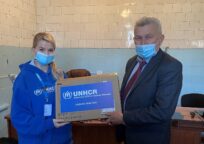
Through computerisation, UNHCR helps increase access to health services along the contact line in eastern Ukraine
26 Jan 2022“Last year we saw a fast development of electronic health services in Ukraine. Everything is computerized now, to the point that it became almost impossible to treat patients without a computer. The new electronic system is mandatory for document renewal, obtaining prescriptions, and making appointments to doctors.” shares Doctor Oleh Suprun […]
-
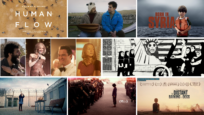
UNHCR recommends: films on forced displacement that will not leave you indifferent
20 Jan 2022Movies allow us to look through the window and get a glimpse of a better understanding of others. A girl next door who wears a hijab and buys fresh bread every morning, a baker who goes to church every Sunday, children in the street chattering in an unfamiliar language, and […]
-

Model UN Refugee Challenge
9 Dec 2021UNHCR is challenging Model United Nations delegates worldwide to debate the major issues related to forced displacement.
-
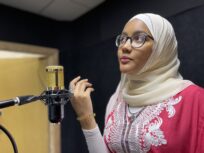
Forcibly displaced children record audio tales from around the world to promote inclusion and diversity in Ukraine
3 Dec 2021Special program for children and teens represents Ukraine’s rich diversity of cultures
-
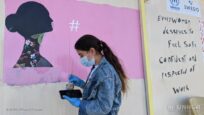
UNHCR NGO Innovation Award 2022
26 Nov 2021Strengthening local responses led by Women-Led Organisations (WLOs)
-
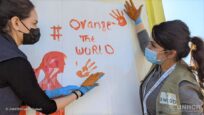
UNHCR urges support to address worsening gender-based violence impact on displaced women and girls
25 Nov 2021Survivors must be supported to heal and recover, and perpetrators must be brought to justice.
-

UNHCR: Conflict, violence, climate change drove displacement higher in first half of 2021
12 Nov 2021UNHCR publishes annual worldwide data on forced displacement each June in its Global Trends reports.
-
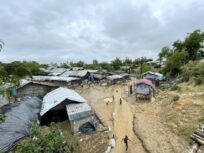
UNHCR: Urgent Steps Needed Now to Mitigate Climate Impact on Displaced People
8 Nov 2021Forced displacement is among the most devastating human consequences of climate change and shows the deep inequalities in our world.
-
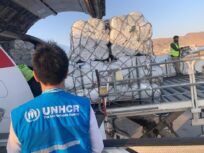
UNHCR begins airlifting aid to Kabul
4 Nov 2021Conflict and insecurity have displaced 3.5 million Afghans inside the country, including some 700,000 forced from their homes so far this year
-
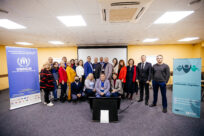
Housing solutions for IDPs: UNHCR held Cities of Solidarity Forum in Vinnytsia
21 Oct 2021October 19, Vinnytsia, Ukraine – The UN Refugee Agency, UNHCR, together with the authorities of Vinnytsia, the Vinnytsia Regional State Administration, and NGO “Association of IDPs “Spilna sprava,” hosted the Cities of Solidarity Forum. Participants had a lively discussion and shared unique practices for achieving durable housing solutions for IDPs […]
